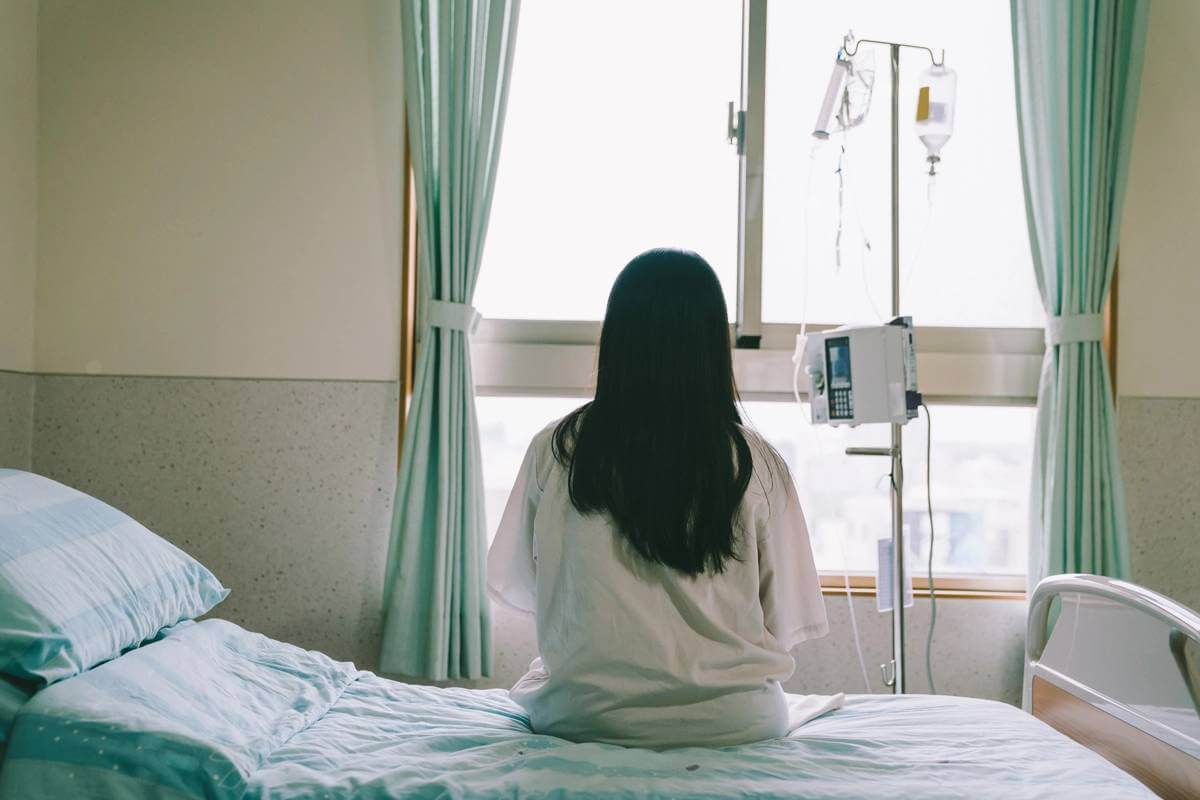The wailing of my roommate put me to bed that night. Yeah, right. I wished that it could. It would be like a real bedtime song. I turned my back and pulled thin covers over my head to try to forget why I was in this plastic bed. This was not my very first experience in a psychiatric hospital. This was my fourth. No, fifth. No, I’ve lost track.
It’s hard to imagine what it would be like to live with a mental disorder. On top of my symptoms, I also have memory loss, making me feel as if I’ve aged 30 years. (Which, in turn, makes me more depressed). I was a college student who desperately needed a break. So I began to refer to my hospitalizations as “grippy socks vacations.”
You have to look for a clock in the hall to see the time. If you are lucky, you can also tell what day it was. You may need to find out the date in some places.
I did not blame my roommate for crying. She then started screaming for her to be taken to the hospital because “something was wrong with the child,” — but she wasn’t pregnant. She was calmed down by the nurse. The situation was sad, but I was now so upset by my roommate’s yelling that I stood up and signed myself out. It should have been simple since I had voluntarily gone there.
Leaving was not as easy as it seemed.
Remember to read the fine print. The paper I signed put me on hold for 24 hours until I could speak to the doctor the following day. I wasn’t prepared for what life in a hospital is like. I had never heard anyone talk about inpatient care or hospitalization.
My protests proved fruitless, and I returned to the same room where I tried to avoid sleeping for that night.
What I Found Out During My Two-Week Stay?
The doctor told me that he was going to “take it all the way to court” until I agreed to stay the recommended number of days: 14. Two weeks? What was I supposed to do as a college student and part-time dog mom for so long? My head was spinning from the amount of work that was waiting. My stay in the hospital had never been longer than a week. Two weeks was a long time for me. I thought it would only add to my trauma.
A few days later, I was wearing my nude, dull-colored pair of grippy socks, walking straight to the cafeteria. (Talk about a flashback from elementary school, except that we would be reprimanded for showing up in socks to school. The people in front of me talked about the latest gossip. In this instance, there had been a fight. Not some small, petty fight in middle school, but a real, frightening, physical fight. As a matter of fact, I do remember the yelling that came from the staff when the alarm sounded.
Later I learned that my new roommate had started a fight (they had moved me to a different bedroom). I didn’t notice that my roommate left the morning before. I think I assumed she was still asleep and didn’t pay much attention. I have found that mental illness has this strange way of making everything seem displaced. It’s like putting toothpaste on your toothbrush, thinking it was face cream. Every day is like that.
The same schedule and routine accompanied us to the cafeteria. The hospital wanted to teach us that routines can help cure depression and make life easier. You can easily believe these claims until you end up back in the same psychiatric hospital.
As I went about my business and made small talk with people I knew, I noticed something flying through the air. I believe it was a cookie. I could not tell what was happening because there was so much yelling. But I could tell that a fight would soon break out. I’m an introvert, so I sank down in my chair to pretend that I was not there.
The Conversation We Must Have:
When someone starts talking about the life of a psychiatric ward, I notice a grey cloud appearing over their head. It’s almost a guarantee that this subject will make people uncomfortable and even scared. When you bring up mental illness or mental health, people are uncomfortable. But when the subject of hospitals is brought up, everyone goes silent. It’s as if they just heard someone say something that was not meant to be said. Although it may not be a topic that is uplifting, it is important because it is a real issue.
There is still much to be done, even though hospitalizations are a far cry from the early days of abuse. Nevertheless, the “grippy sock trip” I took recently taught me some valuable lessons.
The most obvious lesson I learned is that life can be challenging, that everyone has their own story, and that psychiatric hospitals, while not perfect, are a good place to receive the treatment needed to return to the “real world.” This experience also taught me that patients must be heard when they request improvements in their living conditions or care. The hospital is an excellent place to learn how to advocate for oneself, not by fighting or hiding under a desk, but by having a calm conversation, repeating your wants, and making sure that someone listens to you. This way, I got out of the hospital in just ten days instead of two weeks.
I also learned how important a community and support system are, as many patients in the hospital understood me better than the rest of the world.


